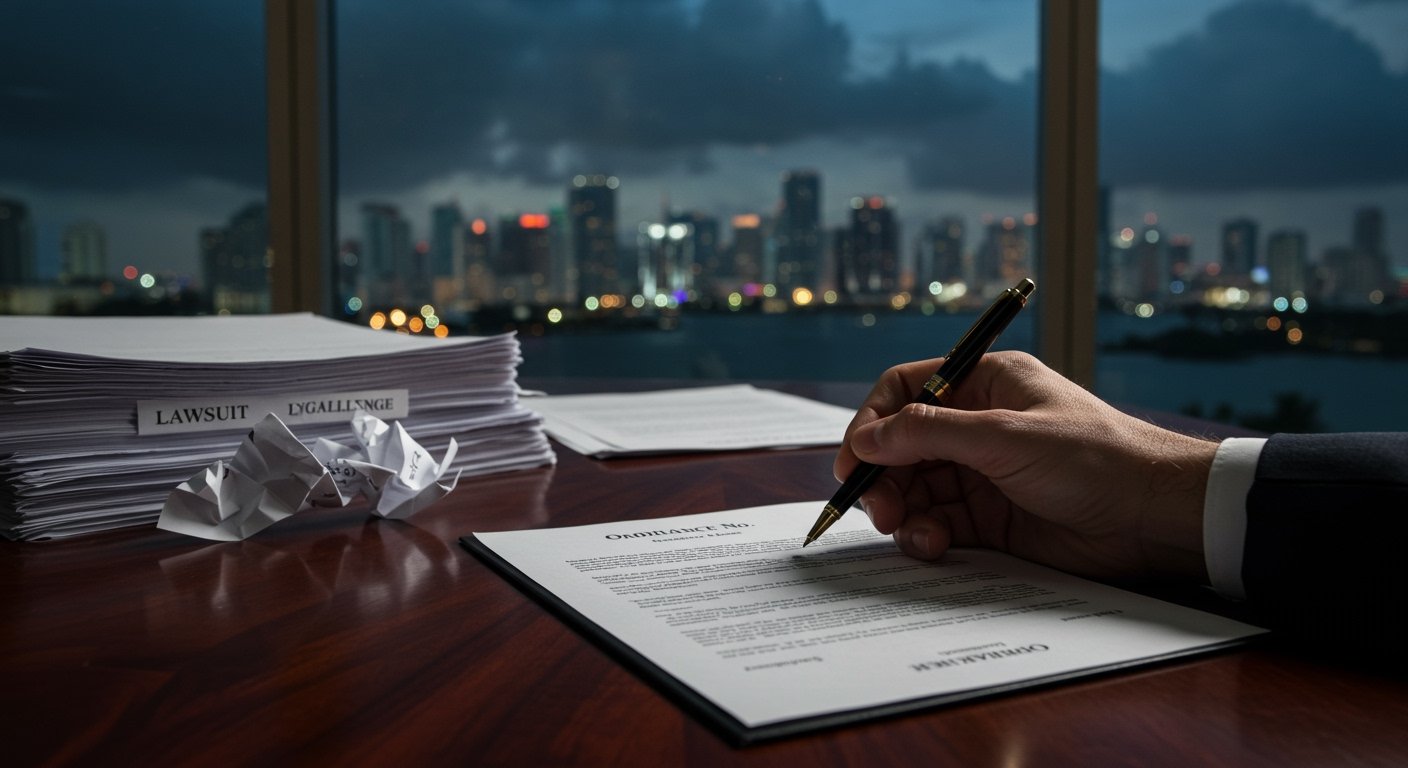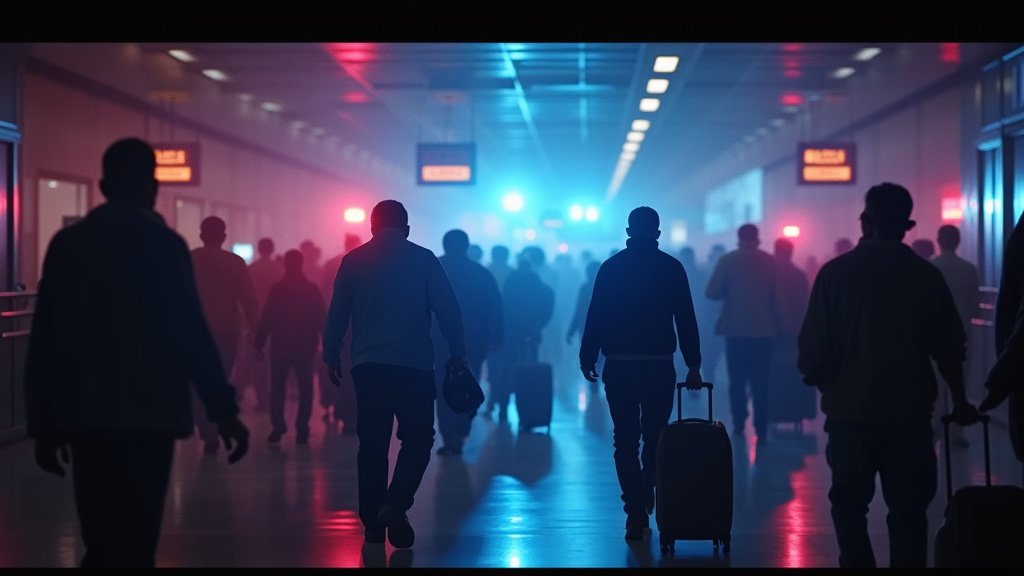Miami, Florida — A decision by the Miami City Commission to postpone the city’s municipal elections has triggered immediate and intense backlash, culminating in legal challenges and accusations of an unlawful power grab. The controversial move, which shifts the election date from November 2025 to November 2026, has drawn sharp criticism from state officials and ignited widespread outrage among residents and potential candidates.
The Commission’s Vote and Swift Enactment
The pivotal vote took place on June 26, 2025, during a contentious meeting of the Miami City Commission. By a narrow 3-2 margin, commissioners approved an ordinance that officially rescheduled the upcoming municipal contest. The measure was sponsored by Commissioner Damian Pardo and received support from Commissioners Christine King and Ralph Rosado. Voting against the ordinance were Commissioners Joe Carollo and Miguel Angel Gabela.
Hours after the commission’s decision, Miami Mayor Francis Suarez signed the ordinance into law, formalizing the postponement. This action has the direct effect of extending the terms of the current mayor and commissioners by one year, a consequence that has become a central point of contention for opponents.
Rationale Offered Amidst Accusations
Proponents of the election date change have articulated two primary reasons for the shift. They argue that aligning the municipal election with federal elections in November 2026 will significantly boost voter turnout, potentially leading to a more representative outcome. Additionally, they contend the change will result in substantial cost savings for the city, estimating approximately $1 million in expenses would be avoided by not holding a standalone municipal election in 2025.
However, these justifications have been largely overshadowed by the vehement opposition the decision has provoked. Residents and prospective candidates for the 2025 election have voiced widespread outrage, viewing the postponement not as a measure to enhance democracy or save funds, but rather as an “illegal power grab” by incumbent officials seeking to prolong their time in office. Critics argue that extending terms without voter consent undermines democratic principles and erodes public trust.
State Officials Condemn the Move
The controversy quickly escalated beyond local debate, drawing the attention and condemnation of high-ranking state officials. Florida Attorney General James Uthmeier and Governor Ron DeSantis have publicly criticized Miami’s action, signaling potential state-level intervention or legal scrutiny.
Both Uthmeier and DeSantis have stated their belief that changing the election date without the explicit approval of voters through a referendum likely constitutes a violation of fundamental legal frameworks. They point to the Florida Constitution and the Miami-Dade County Home Rule Charter as potential grounds upon which the city’s ordinance could be challenged, arguing that altering election timelines in this manner requires direct voter authorization, which was not sought in this case.
Legal Challenges Mount Against the City
The political dispute has rapidly transitioned into legal battles. Several individuals with vested interests in the upcoming election have filed lawsuits against the City of Miami seeking to overturn the controversial ordinance and reinstate the original November 2025 election date.
Among those who have initiated legal action are mayoral candidates Emilio González and Michael Hepburn. Their lawsuits, filed in the wake of the commission’s vote and the mayor’s signing, aim to challenge the legality of the ordinance itself. The core argument in these challenges mirrors the concerns raised by state officials and residents: that the city lacked the authority to unilaterally change the election date and extend terms without a public vote via referendum.
These legal proceedings place the future of the 2025 municipal election in the hands of the courts, which will be tasked with interpreting the relevant state statutes, the Florida Constitution, and the Miami-Dade County Home Rule Charter in light of the city’s actions.
The City’s Defense of the Ordinance
Despite the mounting legal and political pressure, the City of Miami has maintained that the ordinance is legally sound. Through City Attorney George Wysong, the city has defended the legality of the decision, asserting that it acted within its jurisdictional authority.
Wysong and the city’s legal team have cited relevant state statutes and referenced a past court ruling that they argue supports the city’s power to adjust the election calendar. Their defense centers on the interpretation that existing laws and precedents provide municipalities with the discretion necessary to manage election logistics, including timing, under certain circumstances, without necessarily requiring a referendum.
This legal interpretation stands in direct opposition to the arguments presented by the state officials and the plaintiffs in the lawsuits, setting the stage for a significant legal showdown over the limits of municipal power in Florida.
Political Fallout and Potential Recall Efforts
Beyond the courtrooms, the decision has created significant political fallout within Miami. The atmosphere among many residents is one of distrust and frustration, particularly directed at the commissioners who voted for the postponement and the mayor who signed it into law.
Reports indicate that efforts are already underway by some residents to initiate a recall process targeting Commissioner Damian Pardo, one of the ordinance’s sponsors. Recall campaigns are difficult and require significant organizational effort and signature gathering, but the swift movement to explore this option underscores the depth of public anger and the political vulnerability created by the election date change.
The controversy has also undoubtedly impacted the political landscape for both incumbents and prospective challengers, casting a shadow over the city’s governance and raising questions about the integrity of the electoral process.
Broader Implications for Miami’s Governance
The dispute over the election date is more than a procedural squabble; it touches upon fundamental questions of representation, accountability, and the balance of power between elected officials and the electorate.
Should the ordinance stand, it would set a precedent for municipalities in Florida potentially altering election schedules without direct voter consent, a prospect that concerns advocates for voting rights and democratic transparency. Conversely, should the courts strike down the ordinance, it would reinforce the principle that certain fundamental changes to the electoral process require explicit approval from the governed.
The coming months will be critical as the legal challenges proceed and political pressures continue to build. The outcome will not only determine the date of Miami’s next municipal election but may also have lasting implications for how election laws are interpreted and applied across the state of Florida.
The situation remains fluid, with the city preparing its legal defense while opponents press their case in court and on the ground, highlighting the intense political and legal battle now defining Miami’s immediate future.





